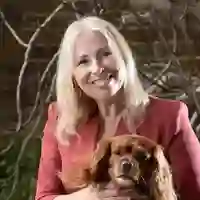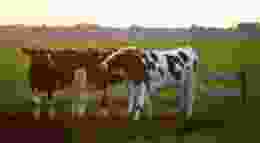
The case for comprehensive animal welfare labelling
When it comes to food shopping, there is often an overwhelming variety of products to choose from. Our shelves are full of produce – but just how well do we truly understand the origins of the food that graces our tables?
Food labelling has an important part to play in helping consumers decide what animal products they wish to purchase – and, just as importantly, which they wish to avoid. The evidence shows the public are strongly in favour of receiving more information on the welfare standards behind the food on their shelves. A 2021 poll found 68 per cent of respondents agreed animal products should be labelled to show the conditions that animals had been reared in, while two in three (64 per cent) 2019 Conservative voters are in favour of a mandatory animal welfare labelling system.
It is this kind of detailed labelling which empowers consumers to make informed decisions. Last month, Defra Secretary of State, Steve Barclay, announced that Defra would hold a Consultation on country-of-origin food labelling. While this is welcome, it merely scratches the surface of what consumers rightfully deserve—a robust, transparent labelling system that leaves no room for confusion. This is what Conservative Animal Welfare Foundation have argued in a new report published today.
Indeed, we believe the British public has a right to know whether the animal products they buy have been raised indoors, whether they are free-range or organic – what we call ‘method of production’, and how they were slaughtered. This type of labelling has certainly proven successful in the past. In the UK, the production of cage-free eggs nearly doubled over a decade, from 31.6 per cent of the market in 2003 (just before labelling was introduced) to 55.7 per cent in 2013 (a decade after labelling was introduced). Clearly there is significant potential for method of production labelling to drive improvements in farm animal welfare when consumers are empowered to make informed purchasing choices.

Instead, animal welfare labelling in the UK is dominated by national industry-led schemes, funded by the farming industry and championing the producers they represent. Principally driven by economic considerations, the standards of such schemes barely scrape above the legislative baseline, and their marketing claims of high welfare produce can be confusing for British consumers. Behind the image of a happy pig roaming outside found on a British industry schemes’ website lies a troubling reality where 60 per cent of UK sows are kept for almost a quarter of their breeding lives in farrowing crates (a cage where they cannot turn around or interact with their piglets). Put simply, industry-led schemes cannot be a substitute for an effective Government-regulated mandatory labelling system.
However, in what should be welcome news for the farming industry, the evidence also shows that the public is willing to pay more for higher welfare produce. A Eurobarometer poll found that 72 per cent of UK citizens were also willing to pay more for products sourced from animal welfare-friendly systems.
Labelling will also reward farmers who produce to higher animal welfare standards. At present, British farmers who wish to rear their animals in higher welfare standards are disincentivised by the confusing labelling landscape. Moreover, since the UK generally has higher farm animal welfare standards compared to potential trade partners, labelling will protect British farmers from being undercut by low welfare imports.
With Defra due to revisit the conversation on food labelling this month and launch a new consultation, we urge the Government to ensure animal welfare is not side-lined. Only effective, transparent and easy to understand labelling will provide consumers with sufficient information to make informed decisions which align with their personal beliefs.

Lorraine Platt is the co-founder of the Conservative Animal Welfare Foundation












